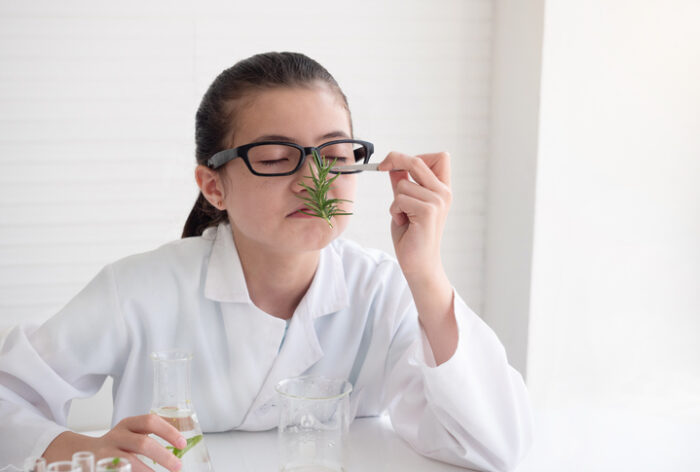[박문일의 생명여행](36) The olfactory research triggered by Long Covid
entrance 2022.10.09 11:05 correction 2022.10.09 11:07
Views 22
entrance 2022.10.09 11:05correction 2022.10.09 11:07
Views 22

The global corona pandemic appears to be coming to an end. We are entering the so-called Post-Crown era. So far, more than 600 million people have been infected around the world and the death toll has exceeded 6 million.
Those who survive should worry about the side effects of corona infection. This is because a third of the people who are experiencing the so-called long COVID symptoms are three months after infection. Long covid refers to the side effects of COVID-19, which means that various symptoms of unknown cause continue for a while after suffering from COVID-19. The World Health Organization (WHO) defines long covid-19 as “a person who has or may have been confirmed with COVID-19 exhibits symptoms that cannot be explained by other diagnoses for at least two months, usually three months” .
The duration of long covid symptoms varies by research institution, but is known to be less than 4 weeks or more after infection and up to 12 weeks or more. However, loss of smell, one of the symptoms of Long Covid, is of particular concern to scientists. For millions of people, one of the characteristic symptoms of COVID-19 is a loss of smell. Even after the coronavirus has healed, many people are experiencing a world that has changed or has lost the ability to smell compared to before. It means that the ability to taste food or the scent of nature is weakened.
With the increase in the number of people who complain of loss of smell, one of the symptoms of Long Covid, scientists are naturally more interested in the sense of smell, which has long been neglected in our sense organs. In fact, although smell is one of the five human senses and is very important for life, the symptoms of COVID-19 have been somewhat underestimated compared to other symptoms. In fact, doctors have not used the sense of smell very much in diagnosing various diseases. The ancient Greeks gave many examples of the use of smell to make a diagnosis, but the idea has been largely overlooked by modern doctors.
There are various odor-sensing neurons in the epithelium inside the human nose and when the Corona 19 virus invades these neurons, it can cause not only loss of smell but also neurological complications. Olfactory neurons, in particular, are connected via nerve fibers to the brain’s olfactory processing centers, where the virus spreads faster and neurons begin to break down, alerting the immune system. As the inflammation worsens, the immune signaling system collapses, eventually destroying the ability of the olfactory neurons inside the nose to transmit odor information to the brain.
Most of the recently discovered scientific interest is, of course, studied medically. The researchers focused on researching how the COVID-19 virus causes loss of smell in humans and why its effects differ between individuals and different strains of the COVID-19 virus. This has sparked renewed interest in treating olfactory disorders, which we believe will help in the treatment of people with this condition due to COVID-19. Of course, this study could also benefit 10% of the general population who already have olfactory disease.
As part of these efforts, efforts to improve the “olfactory training technique”, one of the existing methods of regaining the sense of smell, are progressing rapidly. In addition, attempts are being made to develop an electronic implant that restores the human sense of smell.
Humans have long used dogs’ superior sense of smell, and the 300 million olfactory receptors in their noses have routinely been used to detect bombs, drugs, firearms, and people. Dogs are now being used in the experimental realm of the smell of human diseases like diabetes and cancer.
In fact, the American veterinarian Cynthia Otto is studying how to exploit the animal’s ability to smell human diseases, including COVID-19, a portable electronic device that, like dogs, accurately and reliably recognizes the smell of various diseases. device.
Researchers are also focusing their research efforts on the special inner workings of the human sense of smell. It arises from the fact that the sense of smell is closely linked to human memory. Scientists say the ability to smell is important for people to remember very specific memories and can also be used to strengthen and heal our brains.
Indeed, the sense of smell is deeply rooted in our emotional memory. The experience of smells that evoke vivid memories will be familiar to many. As author Marcel Proust said, “The smell and taste of things are ready to remind us as long as the soul”. Hence, smells can allow us to time travel in our mind and evoke various emotions that we have experienced in the past. For example, a bite of a madeleine cake and a sip of fragrant tea brings you back to happy childhood memories of Sunday mornings with loved ones.
Therefore, the neurobiology underlying the close link between smell and memory has also received considerable attention in recent years. Secrets are revealed in which certain smells instantly remind you of other places and times. The scientific background of how smell affects human behavior, our emotional state and our choice of partners is increasingly being explored. And the various capabilities of the olfactory receptors in the tissues and organs around the human body are starting to be scientifically explained. Putting all these changes together, it seems the world has now understood the special importance of smell. Even if it is a trace left by Long Covid.
Now that the corona pandemic is ending around the world, I think it would be good for humanity suffering from the symptoms of the long covid to recover properly even if it is the sense of smell. The ability to avoid bad smells is good, but above all, the ability to perceive scents is not lost? Our good old memories will disappear in vain ….




